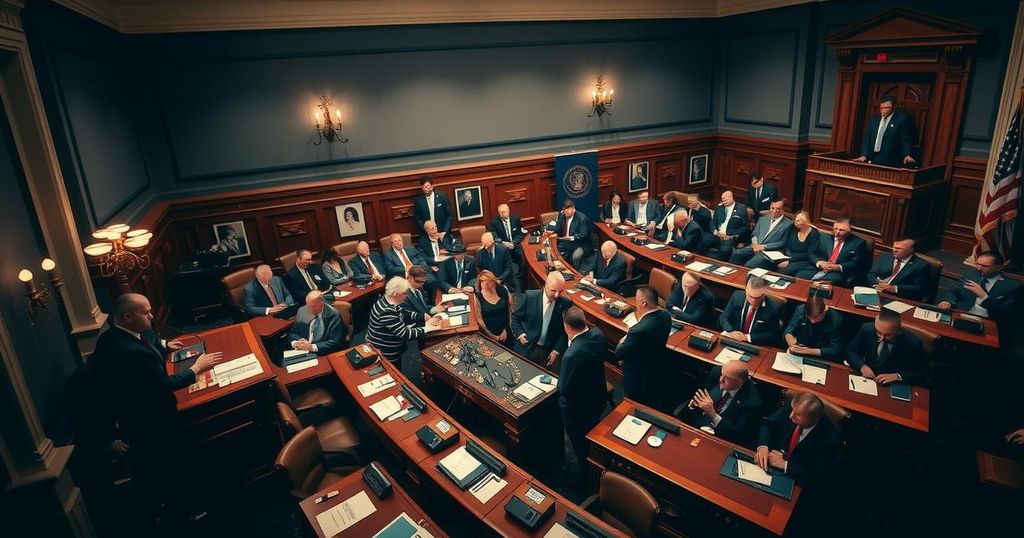Political Dynamics Shift as Trump Administration Takes Shape

Following the recent elections, the Trump administration is forming amid claims of election fraud from both Republicans and liberal supporters after Kamala Harris’s loss. Trump is emphasizing a peace deal with Russia over restoring Ukraine’s territory. Internally, Democrats are reassessing their campaign strategies and messaging, especially concerning economic policies and reproductive rights. The political environment indicates significant shifts in both domestic policy and international relations under Trump’s expected new term.
The dynamics of the political landscape are in flux following the recent election results, with the Trump administration taking shape amid claims of election fraud. Despite Republican assertions during Trump’s initial defeat in 2020 regarding electoral irregularities, the current cycle has seen similar rhetoric emerge among liberal supporters following Vice President Kamala Harris’s loss in 2024. Notably, claims of election discrepancies proliferate on social media, echoing past allegations that lacked substantiated evidence. Trump has proposed a shift in U.S. foreign policy, prioritizing a peace deal with Russia over the restoration of Ukrainian territory, a stance that may provoke significant discourse both domestically and internationally. In the domestic sphere, the Democratic Party faces introspection in the wake of Harris’s loss, scrutinizing its campaign strategy and messaging, particularly regarding economic concerns and reproductive rights. The growing demand for abortion pills suggests a responsive shift among women fearful of potential post-election restrictions. Meanwhile, the blame game continues within the Democratic establishment, with various leaders weighing in on the implications of Biden’s age and the party’s broader direction. Trump’s anticipated policy shifts demonstrate a clear departure from current administration strategies, particularly concerning sanctions on Iran and directives related to reproductive health. This political environment has led to speculation about how these changes will affect international relations, especially with African countries eager to engage with Trump again.
The U.S. political landscape remains deeply polarized following the 2024 elections, revealing not only the shifting priorities of the electorate but also the impact of social media on political discourse. The debate over election integrity has resurfaced, with both parties grappling with their narratives in the wake of campaign losses. Moreover, the Trump administration appears poised to realign foreign policy perspectives, particularly concerning the war in Ukraine and relations with Iran, reflecting a potential pivot in U.S. diplomacy and domestic regulations.
As the Trump administration begins to form, the U.S. faces critical transitions both domestically and internationally. Allegations of election fraud, while largely baseless, have sparked new conflicts in political rhetoric. Concurrently, the Democratic Party must address its electoral strategies, particularly its messaging on economic issues, to remain relevant. With Trump’s foreign policy outlook challenging established norms, the implications for U.S. relations and internal policies promise to unfold in the coming months.
Original Source: www.aljazeera.com








